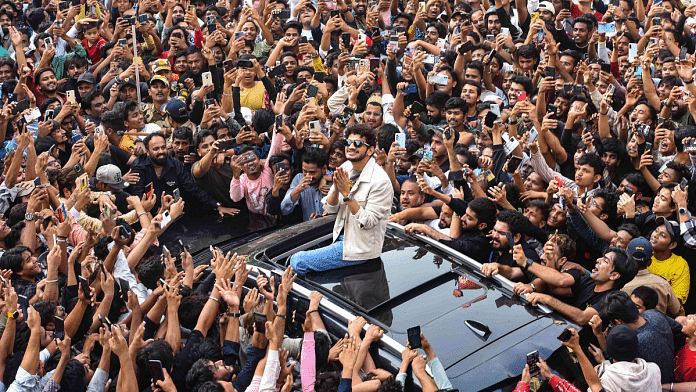Standup comic Munawar Faruqui – once accused of hurting Hindu sentiments – is all the rage after winning the 17th iteration of reality TV show Bigg Boss. But Faruqui’s victory is not an extraordinary occurrence. His win is a testament to the acceptance of diverse perspectives in India, where karma, not religious identity, dictates a person’s fate.
Faruqui’s story unfolds as a poignant melody, harmonising with the inspiring narratives of countless Indian Muslims who have triumphed over modest beginnings to attain recognition. Think of the remarkable journey of Mohammed Shami, a cricket luminary and heartthrob of millions whose dedication now shines bright with the prestigious Arjuna Award. This tale extends beyond Faruqui to encompass a constellation of stars, including two-time world champion boxer Nikhat Zareen, and Instagram influencer and actor Jannat Zubair
High-achieving ordinary Muslims
These prominent figures, however, are not the sole representatives of success among Indian Muslims; numerous other achievers, though not as widely known, have significantly impacted the community’s psyche. Take, for instance, Justice Fathima Beevi, who was posthumously awarded the Padma Bhushan Award this year. Prime Minister Narendra Modi remembered and congratulated Beevi, the first female Supreme Court Justice of India, adding that her win filled him with “immense pride”. There’s also Naseem Bano, an extraordinary artisan specialising in the intricate art of anokhi chikankari, who was recently honoured with the Padma Shri.
Then, there are icons like Nigar Shaji, an Indian aerospace engineer and the project director of ISRO’s Aditya L1 solar mission, who have made invaluable contributions to the nation’s scientific endeavours.
These recent stories encapsulate a broader narrative – the everyday celebration of ordinary Indian Muslims across various domains. Whether in entertainment, sports, science, business, or any other field, they have been embraced and celebrated throughout the nation. Indian Muslim scientists receive genuine love and admiration for their remarkable achievements and contributions to society without caring about their identity.
Also read:
Two key messages
In the tapestry of these collective narratives, two profound messages are crucial to grasp. First, there is a palpable desire among ordinary Indian Muslims to pursue their goals, integrate into the mainstream, and secure a prosperous livelihood, all while breaking free from conservative mindsets. Today, we’re witnessing transformative evolution. It’s a paradigm shift from the past, where the grip of the mullahs was so stringent that the participation of Indian Muslim women in public life was exceptional and typically reserved for either the elite or those compelled to earn a livelihood.
Women from ordinary households are stepping forward not out of obligation, but out of a zeal to pursue their dreams like Sania Mirza and Nikhat Zareen. The regressive mindset that once discouraged Indian Muslims from joining the entertainment industry or women from participating in public life is being vehemently challenged. The admiration and celebration of such icons among the Indian Muslim community signify a rejection of outdated beliefs, showcasing how ordinary Indian Muslims are actively reshaping their narrative and redefining what it means to be a devout Muslim in the modern context.
The second message is the challenge such icons pose to the victimhood narrative surrounding Indian Muslims. Some sections of Western and Indian media have left no stone unturned in portraying them as marginalised. Take the example of Faruqui, whose legal challenges were extensively covered, often emphasising his religious identity and perpetuating the victimisation narrative.
It is true that India needs to address the issue of reforming laws on hurt sentiments, but these laws are applied uniformly regardless of identity. With Faruqui’s recent triumph, a crucial question arises: are we challenging the narrative of India being governed by a fascist government where Muslims are nothing but victims?
This represents a significant challenge for Indian Muslims. If they fail to believe that merit can propel them to their rightful place in society, realising their dreams would be an elusive endeavour. These icons, by breaking the victimhood narrative, provide hope and inspiration to their community, signalling that if they can overcome obstacles, others can too. It’s not just one Shah Rukh Khan shining as an exception; these stories indicate the potential for many more such luminaries to be born, contributing to a more inclusive and aspirational narrative for Indian Muslims.
Amana Begam Ansari is a columnist and TV news panelist. She runs a weekly YouTube show called ‘India This Week by Amana and Khalid’. She tweets @Amana_Ansari. Views are personal.
(Edited by Zoya Bhatti)



